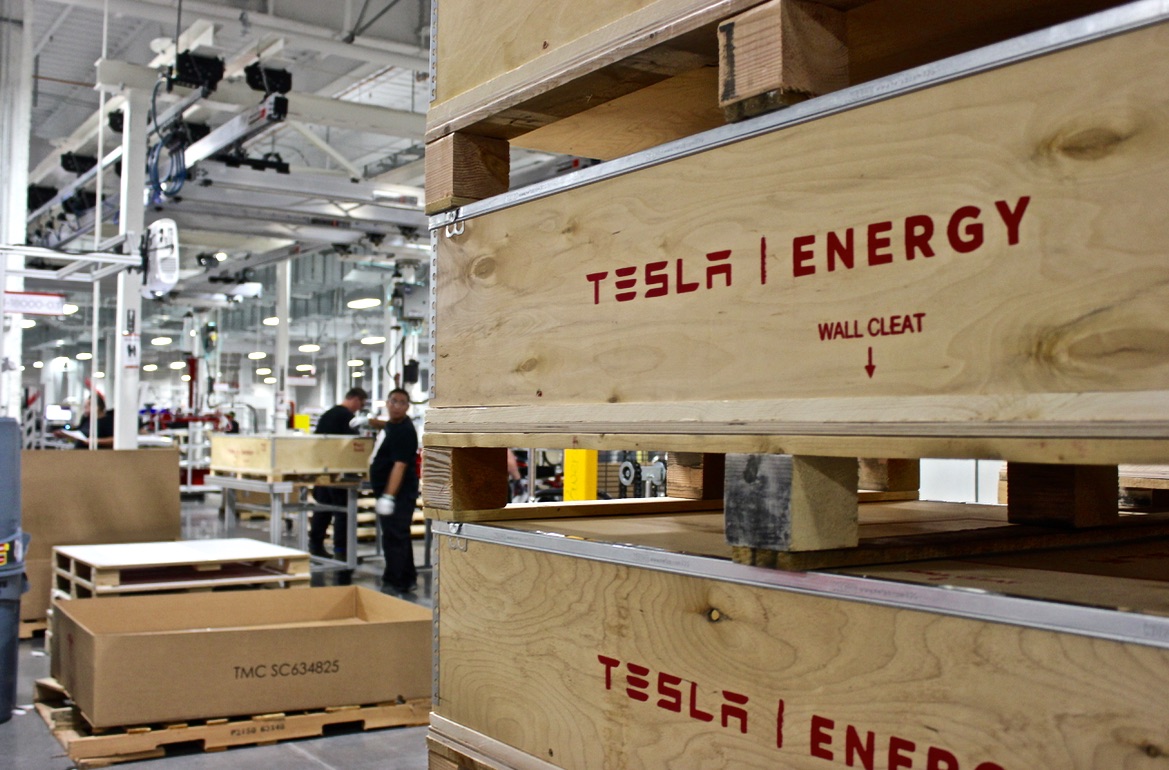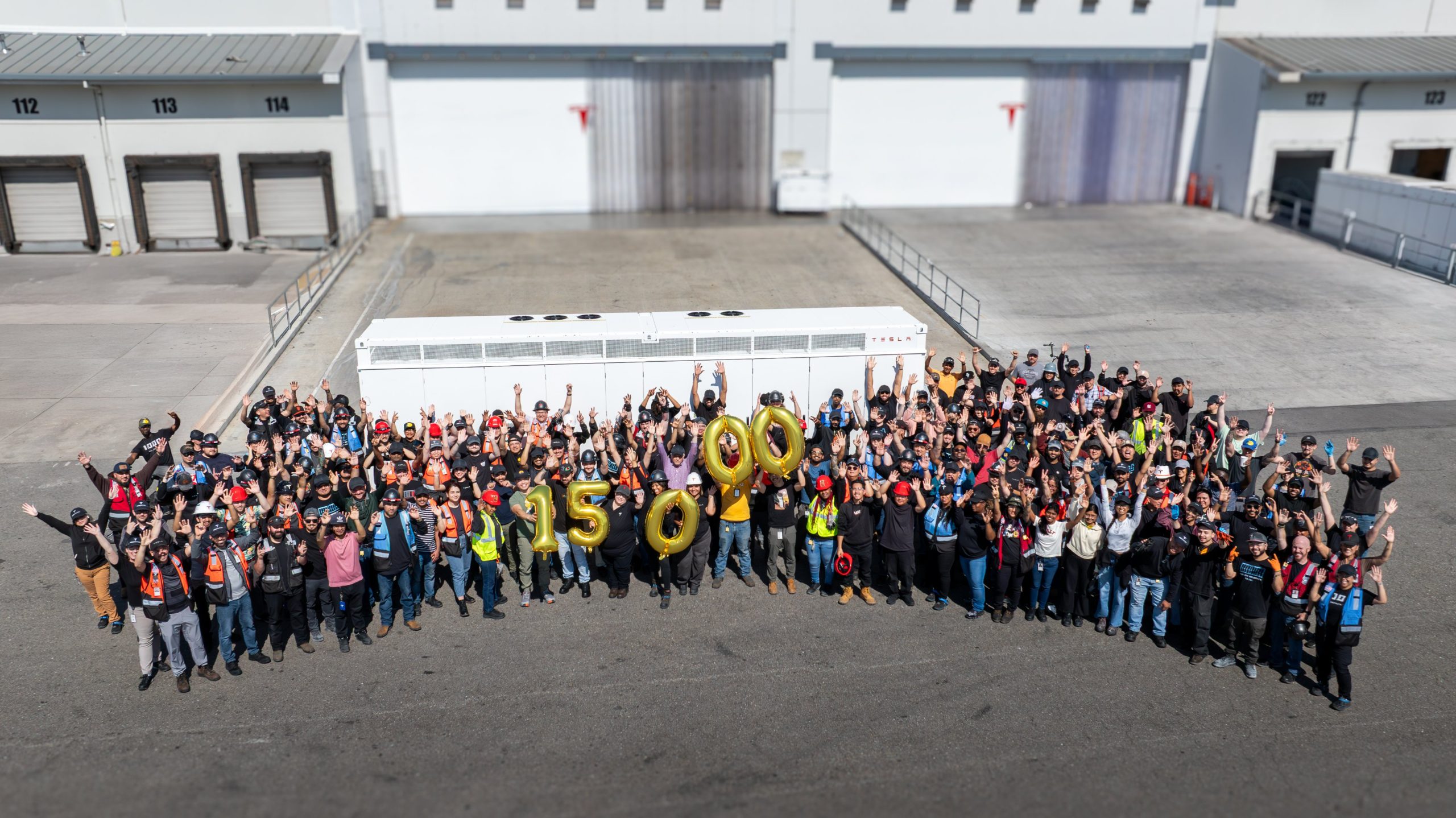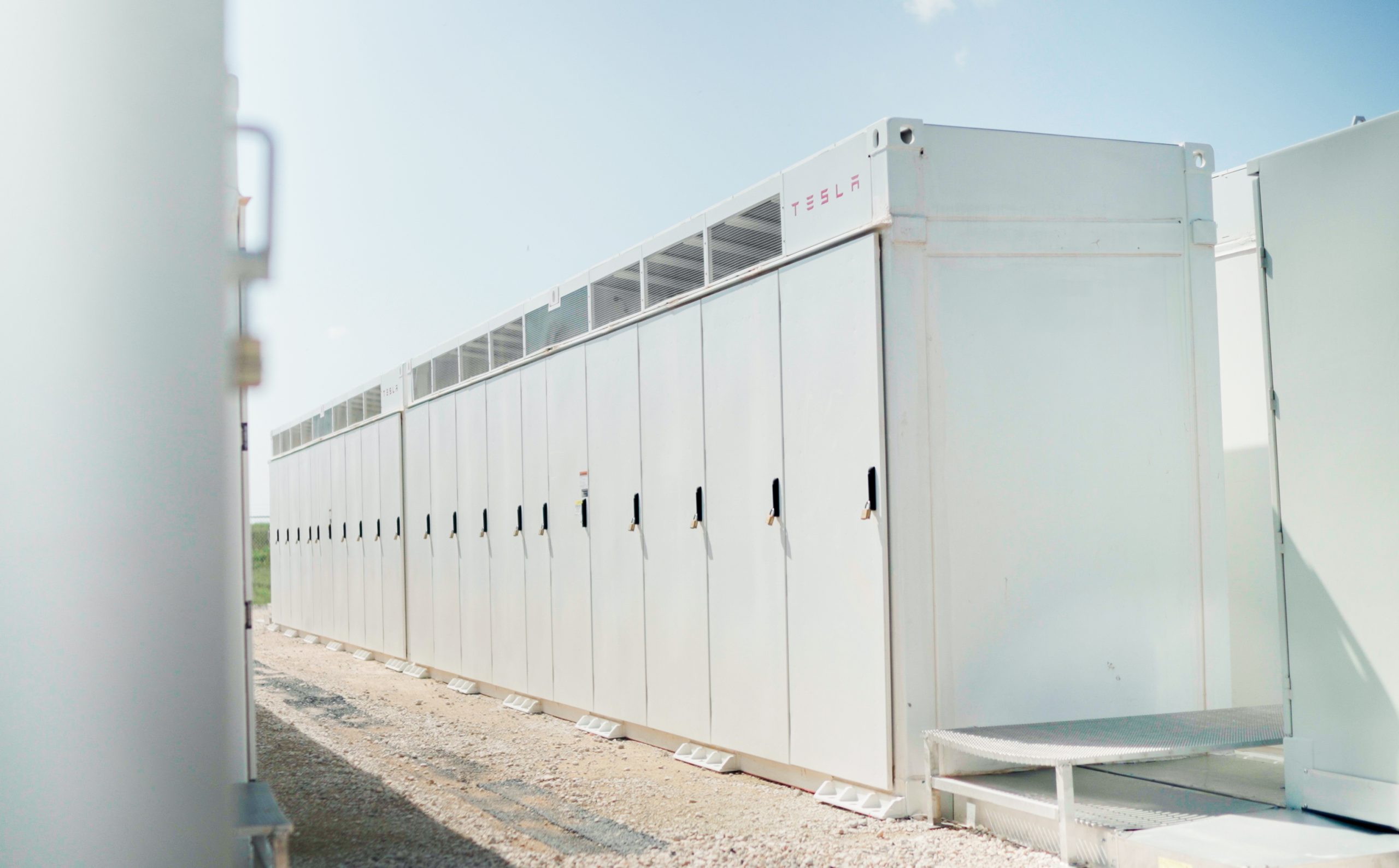

Energy
Tesla is reportedly looking to invest in Chile’s largest lithium producer
Tesla is currently in talks with Sociedad Química y Minera de Chile (SQM), Chile’s largest lithium producer, as a possible partner in the development of a processing plant in the South American country.
Chilean development agency Corfo executive vice-president Eduardo Bitran noted that the deal between Tesla and SQM would likely result in a new facility that would aid the Elon Musk-led electric car maker and energy firm in securing the supply of raw material used in lithium-ion batteries.
In a statement to the Financial Times, the Corfo executive vice president stated that Tesla’s interest in Chile would ultimately help the country become a key player in the emerging electro-mobility market. Lithium, after all, is a valuable component of electric car batteries, and it is incredibly abundant in the region. As electric vehicles become more mainstream, however, the prices for battery raw materials have also soared. Thus, in a lot of ways, Tesla’s initiatives at sealing a partnership with SQM will not only result in more battery supplies for its cars; it would help the company’s operating costs as well.
“With an increasing supply of lithium, Chile is key for any company that wants to become global in electro-mobility. Being close to Chile or having a strategic alliance in Chile becomes a strategic factor for a company like Tesla,” Bitran said, according to an FT report.
As the auto industry races to develop and build emissions-free vehicles, lithium-abundant countries such as Chile are set to emerge as valuable partners for the world’s biggest car companies. Like Tesla, Toyota has also expressed its interest in securing a partnership with a lithium provider from the region. Just recently, the Japanese automaker purchased a 15 percent stake in Orocobre, an Argentinian lithium producer, most likely as a strategic initiative to secure lithium resources for its upcoming electric vehicles.
Chile’s lithium industry has the potential to significantly improve the South American nation’s economy. Considering that Chile owns 54 percent of the world’s lithium reserves — around 14.3 million cubic tonnes, it is estimated that the lithium industry can attract as much as $10 billion in investment and up to 10,000 new jobs for its citizens, as noted in a report from the Global Finance Magazine.
Overall, Bitran is quite optimistic about the idea of Tesla investing in a lithium facility in Chile. While talks are still in early stages, the Corfo executive believes that the American company’s initiatives might end up starting a chain reaction that benefits not only the country’s lithium industry. In a further statement to the FT, Bitran asserted that Tesla could, in the future, even manufacture battery cathodes in the South American nation, since Chile has some of the world’s most affordable solar power.
Neither Tesla nor SQM has released a statement about the companies’ possible deal.
Energy
Tesla launches first Virtual Power Plant in UK – get paid to use solar
Tesla has launched its first-ever Virtual Power Plant program in the United Kingdom.

Tesla has launched its first-ever Virtual Power Plant program in the United Kingdom. This feature enables users of solar panels and energy storage systems to sell their excess energy back to the grid.
Tesla is utilizing Octopus Energy, a British renewable energy company that operates in multiple markets, including the UK, France, Germany, Italy, Spain, Australia, Japan, New Zealand, and the United States, as the provider for the VPP launch in the region.
The company states that those who enroll in the program can earn up to £300 per month.
Tesla has operated several VPP programs worldwide, most notably in California, Texas, Connecticut, and the U.S. territory of Puerto Rico. This is not the first time Tesla has operated a VPP outside the United States, as there are programs in Australia, Japan, and New Zealand.
This is its first in the UK:
Our first VPP in the UK
You can get paid to share your energy – store excess energy in your Powerwall & sell it back to the grid
You’re making £££ and the community is powered by clean energy
Win-win pic.twitter.com/evhMtJpgy1
— Tesla UK (@tesla_uk) July 17, 2025
Tesla is not the only company that is working with Octopus Energy in the UK for the VPP, as it joins SolarEdge, GivEnergy, and Enphase as other companies that utilize the Octopus platform for their project operations.
It has been six years since Tesla launched its first VPP, as it started its first in Australia back in 2019. In 2024, Tesla paid out over $10 million to those participating in the program.
Participating in the VPP program that Tesla offers not only provides enrolled individuals with the opportunity to earn money, but it also contributes to grid stabilization by supporting local energy grids.
Energy
Tesla Lathrop Megafactory celebrates massive Megapack battery milestone
The Tesla Megapack is the backbone of Tesla Energy’s battery deployments.

The Tesla Lathrop Megafactory recently achieved a new milestone. As per the official Tesla Megapack account on X, the Lathrop Megafactory has produced its 15,000th Megapack 2 XL battery.
15,000 Megapack Batteries
Tesla celebrated the milestone with a photo of the Lathrop Megafactory team posing with a freshly produced Megapack battery. To commemorate the event, the team held balloons that spelled out “15,000” as they posed for the photo.
The Tesla Megapack is the backbone of Tesla Energy’s battery deployments. Designed for grid-scale applications, each Megapack offers 3.9 MWh of energy and 1.9 MW of power. The battery is extremely scalable, making it perfect for massive energy storage projects.
More Megafactories
The Lathrop Megafactory is Tesla’s first dedicated facility for its flagship battery storage system. It currently stands as the largest utility-scale battery factory in North America. The facility is capable of producing 10,000 Megapack batteries every year, equal to 40 GWh of clean energy storage.
Thanks to the success of the Megapack, Tesla has expanded its energy business by building and launching the Shanghai Megafactory, which is also expected to produce 40 GWh of energy storage per year. The ramp of the Shanghai Megafactory is quite impressive, with Tesla noting in its Q1 2025 Update Letter that the Shanghai Megafactory managed to produce over 100 Megapack batteries in the first quarter alone.
Tesla Energy’s Potential
During the first quarter earnings call, CEO Elon Musk stated that the Megapack is extremely valuable to the energy industry.
“The Megapack enables utility companies to output far more total energy than would otherwise be the case… This is a massive unlock on total energy output of any given grid over the course of a year. And utility companies are beginning to realize this and are buying in our Megapacks at scale,” Musk said.
Energy
Tesla Megapacks powers the xAI Colossus supercomputer
Tesla Megapacks step in to stabilize xAI’s Colossus supercomputer, replacing natural gas turbines. Musk’s ventures keep intertwining.

Tesla Megapack batteries will power the xAI Colossus supercomputer in Memphis to ensure power stability. The collaboration between Tesla and xAI highlights the synergy among Elon Musk’s ventures.
The artificial intelligence startup has integrated Tesla Megapacks to manage outages and demand surges, bolstering the facility’s reliability. The Greater Memphis Chamber announced that Colossus, recently connected to a new 150-megawatt electric substation, is completing its first construction phase. This transition addresses criticism from environmental justice groups over the initial use of natural gas turbines.
“The temporary natural gas turbines that were being used to power the Phase I GPUs prior to grid connection are now being demobilized and will be removed from the site over the next two months.
“About half of the operating turbines will remain operating to power Phase II GPUs of xAI until a second substation (#22) already in construction is completed and connected to the electric grid, which is planned for the Fall of 2025, at which time the remaining turbines will be relegated to a backup power role,” the Chamber stated.
xAI’s rapid development of Colossus reflects its ambition to advance AI capabilities, but the project has faced scrutiny for environmental impacts. The shift to Megapacks and grid power aims to mitigate these concerns while ensuring operational continuity.
The Megapack deployment underscores the collaboration among Musk’s companies, including Tesla, SpaceX, Neuralink, and The Boring Company. Tesla appears to be the common link between all of Musk’s companies. For example, The Boring Company built a tunnel in Giga, Texas. In addition, Musk has hinted at a potential collaboration between the Tesla Optimus Bot and Neuralink. And from January 2024 to February 2025, xAI invested $230 million in Megapacks, per a Tesla filing.
Tesla Energy reported a 156% year-over-year increase in Q1 2025, deploying 10.4 GWh of storage products, including Megapacks and Powerwalls. Tesla’s plans for a new Megapack factory in Waller County, Texas, which is expected to create 1,500 jobs in the area, further signal its commitment to scaling energy solutions.
As xAI leverages Tesla’s Megapacks to power Colossus, the integration showcases Musk’s interconnected business ecosystem. The supercomputer’s enhanced stability positions xAI to drive AI innovation, while Tesla’s energy solutions gain prominence, setting the stage for broader technological and economic impacts.
-

 Elon Musk1 day ago
Elon Musk1 day agoWaymo responds to Tesla’s Robotaxi expansion in Austin with bold statement
-

 News1 day ago
News1 day agoTesla exec hints at useful and potentially killer Model Y L feature
-

 Elon Musk2 days ago
Elon Musk2 days agoElon Musk reveals SpaceX’s target for Starship’s 10th launch
-

 Elon Musk3 days ago
Elon Musk3 days agoTesla ups Robotaxi fare price to another comical figure with service area expansion
-

 News1 day ago
News1 day agoTesla’s longer Model Y did not scale back requests for this vehicle type from fans
-

 News1 day ago
News1 day ago“Worthy of respect:” Six-seat Model Y L acknowledged by Tesla China’s biggest rivals
-

 News2 days ago
News2 days agoFirst glimpse of Tesla Model Y with six seats and extended wheelbase
-

 Elon Musk2 days ago
Elon Musk2 days agoElon Musk confirms Tesla is already rolling out a new feature for in-car Grok








